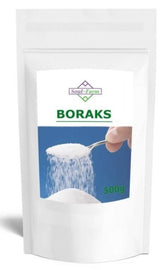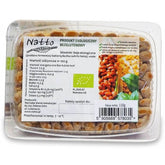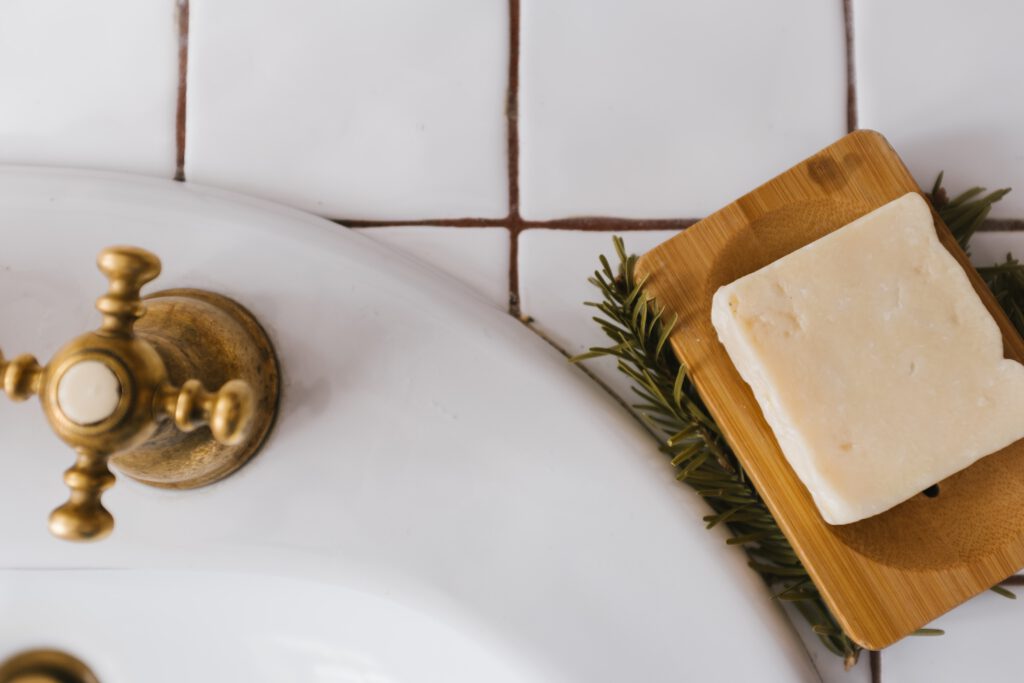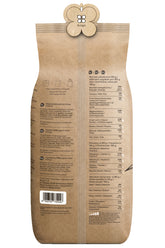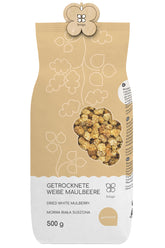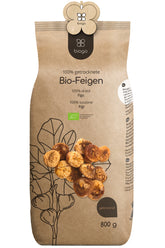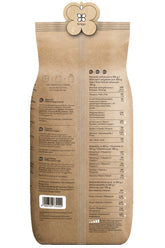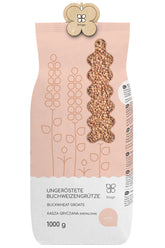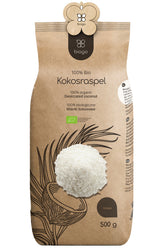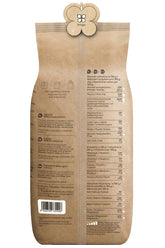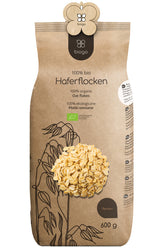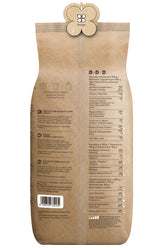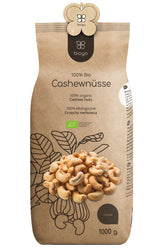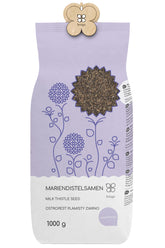Potassium soap - use not only in cosmetics
CONTENTS
- How do you recognize the original gray soap?
- Invaluable properties and versatile use of traditional potash soap
- Potassium soap - not only in cosmetics and care
Potassium soap is a traditional gray soap that has been known in Poland for about a hundred years – the first was produced in 1921 under the brand name "Biały Jeleń." Our great-grandmothers, grandmothers, and mothers used it. Then, when colorful, fragrant sodium soaps appeared in drugstores in the 1980s and 1990s, potassium gray soap was almost completely forgotten. Today, with increasing social awareness of an ecological lifestyle, and zero-waste and less- waste movements becoming increasingly popular, gray soap is back in fashion. Potassium soap fits into these trends for many reasons. It is 100% natural, contains no artificial additives, bleaching agents, or preservatives harmful to the skin and the environment. It is created during the saponification process with potassium hydroxide from the highest quality palm fats. It is absolutely universal and safe for use by the whole family, from babies to seniors. Let's see why it's worth remembering and take a closer look.
How do you recognize the original gray soap?
Somewhat different from its name, gray soap is typically brownish-beige in color, and the longer it "matures," the darker it becomes. Its consistency is quite soft and becomes oilier and more plastic under the influence of water. If we want to be sure we're buying traditional potash soap, we need to check if the ingredients include potassium linoleate, potassium palmate , or potassium olive . Then we can be sure it's the original potash soap. If sodium is present instead of potassium in the ingredients , it means the soap is not a traditional gray soap, but a sodium soap.
Invaluable properties and versatile use of traditional potash soap
Potassium soap can be used by people with very sensitive skin, people with skin allergies, neurodermatitis and children, as it does not contain any artificial, irritating colors, preservatives or fragrances and has the following properties, among others:
- hypoallergenic,
- antibacterial,
- Relief of inflammation,
- accelerates the regeneration of the epidermis and helps to reduce scars,
- Reduction of swelling,
- Support the fight against acne,
- helps heal wounds and cuts,
- Cleansing not only the body but also the hair and scalp,
- help get rid of footprints.
Firstly, this soap is non-irritating and doesn't cause allergic reactions. It's eco-friendly, washes, cleanses, and degreases the skin very well. Thanks to its antibacterial properties, it's perfect for acne-prone skin. It helps relieve inflammation, abrasions, cuts, and swelling. It helps remove splinters: if you soak your hand or foot in warm soapy water, the splinter should come out on its own. Doctors also recommend potassium soap for women in the postpartum period. It can be used not only for washing the entire body but also for washing the hair and scalp, which fits perfectly with the zero-waste movement. Instead of buying hand soap, shower gel, and shampoo separately in three plastic bottles, we have an eco-friendly and a universal soap that is natural and non-irritating. However, after washing your head with gray soap, you must apply a moisturizing conditioner to the ends of your hair, as soap can dry it out with regular use.
Potassium soap - not only in cosmetics and care
Although potash soap is classified as a natural cosmetic and not a detergent, its use can successfully extend beyond daily care. Grated, it can replace washing powder. It's a perfect solution for people who are allergic to detergents. The resulting soap flakes can also be used for washing baby clothes. Potash soap dissolved in water can also be used for:
- Remove stains from fabrics, carpets or sofas,
- Wash makeup brushes and sponges,
- Washing brushes and combs,
- Wash floors, windows, mirrors and tiles,
- Remove stains from walls.
- Gray potash soap can be used as a base for making a homemade paste for cleaning bathroom and kitchen surfaces, and even the floor. It's also suitable for washing garden furniture, for example. This soap also has other uses in the garden—a solution of gray soap with water can be used as a natural spray on plants when fighting aphids, cotton wool, or spider mites, for example. You can also wash garden tools, pots, chests, and various types of containers with gray soap. For this purpose, you can purchase liquid potash soap, for example, with silver or castor oil added.
- It is interesting to note that, due to its highly plastic consistency, potash soap is used by prospective dentists to make tooth models and to practice on them, as well as in sculpture studios during art studies.
- It's safe to say that this inconspicuous, small, sticky, plastic, and brown cube can work wonders, and each of us should have one at home. It can successfully replace several products—shampoo, laundry detergent, bathroom cleansing milk, and even help protect plants from pests. This is not only a universal measure, but also the most environmentally friendly and economical.
THE PUBLISHER'S CHOICE
Almonds 1 kg BIOGO
- €11,69
€13,75- €11,69
- Unit price
- / per
Walnuts 800 g BIOGO
- €8,65
€10,18- €8,65
- Unit price
- / per
Dried organic mango 400 g BIOGO
- €10,99
- €10,99
- Unit price
- / per
Dried White Mulberries 500 g ORGANIC
- €5,84
€6,87- €5,84
- Unit price
- / per
Dried organic figs 800 g BIOGO
- €30,12
- €30,12
- Unit price
- / per
Unpeeled buckwheat groats 1 kg BIOGO
- €2,81
€3,31- €2,81
- Unit price
- / per
Organic coconut flakes 500 g BIOGO
- €10,07
- €10,07
- Unit price
- / per
Organic oat flakes 600 g BIOGO
- €3,77
- €3,77
- Unit price
- / per
Organic cashew nuts 1 kg BIOGO
- €19,99
- €19,99
- Unit price
- / per
Milk thistle seeds 1 kg BIOGO
- €3,99
- €3,99
- Unit price
- / per






